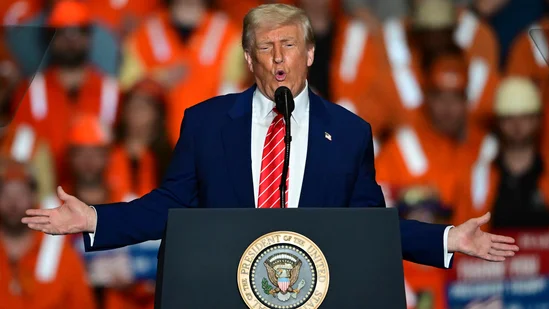Edinburgh, July 26 — U.S. President Donald Trump on Friday issued a dire warning to European leaders over rising migration levels, declaring that immigration is “killing” Europe and urging nations to clamp down on border crossings before, in his words, it’s “too late.”
“You’re not going to have Europe anymore. You better get your act together,” Trump told reporters shortly after arriving in Scotland, where he is scheduled to meet with UK Prime Minister Keir Starmer and European Commission President Ursula von der Leyen.
Calling the surge in migration a “horrible invasion,” Trump blamed what he described as weak leadership for Europe’s growing challenges. Without naming specific countries, he praised certain European heads of state for resisting liberal immigration policies but said they lacked international support.
Trump, whose mother was born in Scotland and father immigrated to the U.S. from Germany, used the visit to tout his own hardline immigration record. “Last month, we had nobody entering our country. We took out a lot of bad people that got there,” he claimed, referring to recent enforcement measures under his administration.
Since returning to the White House in January, Trump has reinstated strict immigration controls, including mass deportation orders, and has vowed to carry out the largest expulsion campaign in U.S. history. His immigration push has ignited widespread protests across major American cities, with critics accusing the administration of violating human rights and due process protections.
Trump’s comments come amid renewed debate in Europe over how to manage migration flows, particularly as conflicts, economic instability, and climate change continue to drive displacement across Africa, Asia, and the Middle East.
According to United Nations estimates from 2020, Europe is home to approximately 87 million international migrants, making it one of the largest global destinations for cross-border movement.
As Trump prepares for high-level meetings in London and Brussels, his sharp remarks are likely to deepen divisions over immigration policy both within Europe and between Western allies.

